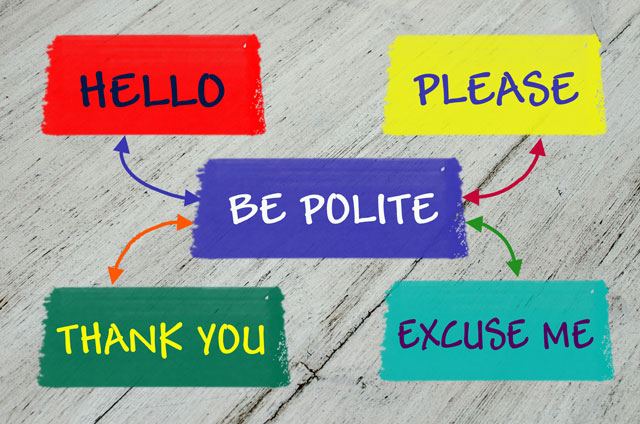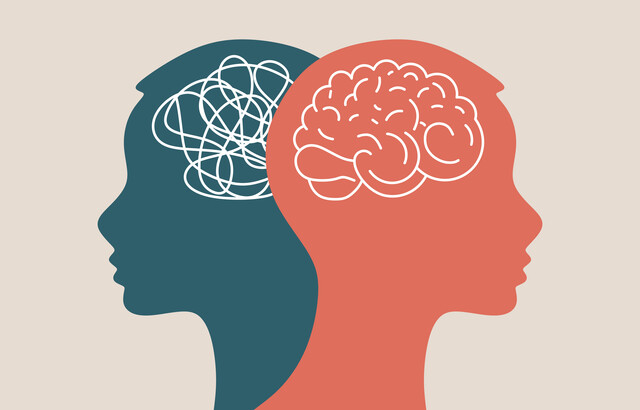Parenting is a real-world experience. In this article, we will cover the overarching characteristics of each major developmental period, followed by presenting a common situation in each. We'll look at how positive parenting practices can be applied in each, as contrasted with not practicing positive parenting.
Infancy (Birth to 1)
A major task for babies is adapting to life outside the womb by regulating their bodies through feeding, sleeping, and motor skills. They work hard to become mobile by rolling over, sitting up, standing, and then walking. Connecting with their primary caregivers, mostly their parents, is a fundamental part of infancy when bonding and attachment occur. Babies are busy, as well, building their cognitive abilities, including language. They interact with their new world primarily through their bodies.
Jane and Amy
Jane and Amy are both 9 months old and skilled at crawling. They are now able to move all over the house and are very interested in all the new things they can explore.
Jane's mom believes children should learn not to touch things that are breakable or belong to others. She has made the decision not to put such things away. Instead each time Jane reaches for something breakable or something that isn't hers, her mom scolds her harshly saying, "NO Jane. Don't touch!" If Jane continues, she tells her, "You are a bad girl." She often picks Jane up and puts her in her crib to keep her from getting into things. Jane's mom doesn't praise Jane when she reaches for her toys -- after all, that's what she's supposed to do, in her opinion, so why should she have to acknowledge this?
Amy's mom also believes children can learn not to touch things that are breakable or belong to others. However, she doesn't believe an infant is capable of understanding this just yet. She has made the decision to put as many such things away as is reasonable for now. She has left those things that are safe, and she's put a few extra baby-friendly items out, as well. When Amy does reach for something breakable or not hers, she redirects her saying, "That's not for touching, Amy, but this is." She then shows Amy what she can touch. She praises Amy when she makes good choices on her own. Amy is not put in her crib to keep her out of things.
When the girls are 12 months old they go to their aunt's house to spend the weekend. Jane sits very still in one place. Her aunt cannot get her to accept the bowls and spoons to play with while she is making dinner. The next morning she offers Jane a box of her scarfs and hats and tries to play dress-up with her. Jane bursts into tears. Her aunt is concerned something is wrong with Jane.
Amy's weekend is very different. She freely explores the house, but doesn't touch unless her aunt says it's okay. She has a great time playing with the bowls and spoons while her aunt makes dinner. The next morning, Amy puts all her aunt's scarfs on and stacks two hats on her head, making her aunt smile and laugh. Amy's aunt is delighted with Amy's engagement and confidence.
Jane's mother does not practice positive parenting, while Amy's mother does. In this scenario, the two mothers handled their daughter's drive to physically explore their world, for trust, and for connecting with others very differently.
Jane's mother has shut this down and, in turn, Jane has learned punishment follows exploring and that she is not worthy of having these experiences. She has built up a sense of mistrust in adult caregivers, not believing they are there to help her feel safe and serve as a secure base. Because Jane is so young and pre-verbal, her only way of dealing with the situation of her aunt's expectations is to withdraw or cry.
Amy, on the other hand, has been allowed to explore in an environment that has been designed to meet her physical and emotional needs. Her mother has helped her learn in a gentle way not just what is off limits, but that adults will provide her with interesting alternatives. She experiences a sense of trust and secure attachment leading her to feel confident and valued by adults.
Toddlerhood (1 to 3)
Toddlers are focused on establishing their autonomy or independence, cultivating their relationships with important others, such as parents and siblings, and they continue working hard to learn how the physical world works. Play is an essential way for doing this. Language takes off at an amazing rate, but is still not sophisticated enough for toddlers to be able to fully express themselves with words. The role of their imaginations can be seen more. Toddlers are experiencing more advanced emotions and are becoming self-aware. This is the time when parents hear a lot of "No" which is actually a cognitive advancement as it represents them being aware they are distinct individuals. For parents, socializing becomes of major importance.
James and Billy
James and Billy are both 2 years old and have moved out of their cribs. They are now getting out of bed several times each night.
James' parents send him to bed only after he starts having a tantrum, because they believe this means he is ready for sleep and won't get up. This makes his bedtime anywhere from right after dinner to sometimes near midnight. They believe children should learn to say goodnight and get into bed on their own at a young age so they will be independent. They've heard toddlers want to independent. They can't understand why James keeps getting up, since he should be exhausted and should feel happy and cooperate, because they are treating him like a big boy who can go to bed on his own. Each time he gets out of bed they yell at him to get back in and go to sleep. If he doesn't, they make a big show and pick him up and roughly put him back in and growl, "Stay!" or, "What's wrong with you?!" Sometimes they just let him stay up for a while and play so he will eventually get tired. James continues to get out of bed night after night and the whole family is sleep deprived.
Billy's parents have a goal he will be asleep by 8 p.m., so they set bedtime at 7:30. At about 7 they begin winding down playtime. Together they put the toys away and take Billy into his bedroom to choose PJs and books to read. They get him settled into bed and read until 7:30. They kiss him goodnight and remind him he needs his rest to grow big and strong. When he gets up, they gently take him back in and put him back in bed. They don't say much to Billy during these times. After a couple of months, Billy is rarely getting out of bed. In the morning, after he has stayed in bed, his parents praise him for this and put a happy face on the calendar they keep for this purpose.
James' parents do not practice positive parenting, while Billy's parents do. In this scenario, the two sets of parents handled their son's drive to be autonomous, while enforcing limits, very differently.
James' parents do not correctly understand autonomy. The boys are getting up because they want to have control over what happens to them and try out making their own decisions, one of which is when to go to sleep. That's the way autonomy in toddlers is about independence. It's not about expecting them to exhibit self-management in ways beyond their capability, such as going to bed when one is tired. Toddlers almost never think they're tired! Billy's parents understand this so they set a firm bedtime for him and they don't lose control when he shows autonomy in this situation.
James' parents believe they are enforcing limits when they tell him to get back into bed, but they are inconsistent and so James has been intermittently reinforced. He knows some of those times he will be allowed to stay up, so he's willing to risk it to get that reward. Billy gets a lot of loving attention in preparation for bed, but very little positive reinforcement from his parents when he gets up. However, he does get positive reinforcement in the morning, so he stays in bed to continue to receive this.
Preschool Years (3 to 5)
Children's overall rate of physical growth is slowing a bit. Their large motor skills now allow them to run, climb, and jump and they often take risks. They are increasingly able to use language to make their needs known, and for their own benefit, and to engage more fully in conversations. Play is now less about directly interacting with toys, and more about using them in imaginary play. Preschoolers are learning to take the initiative, so they want to be purposeful and helpful. They are becoming better at associating their actions with consequences. During the preschool years, children begin discovering friendship.
Jill and Mary
Jill and Mary are 4. Recently they have started lying. They say, "Yes," when asked if they have brushed their teeth, when they haven't. They say, "No," when asked if they were responsible for spilling juice on the couch, when they were.
Jill's father is appalled. He cannot believe his sweet little girl is a liar! When he catches her in a lie he sits her down and gives her a long lecture with a raised voice, pointing his finger at her, shaking his head in disbelief. He says things like, "Lying is wrong. People don't like liars. Liars can't be trusted." He tells her he simply won't stand for it in her. He keeps asking her if she understands. Finally, she tentatively nods her head and he asks her if she really does or if she's lying about that, too. He's pretty sure he's made his point and she will never lie again. However, the next day she lies about washing her hands before dinner. Her father is completely confused and frustrated, so this time he gives her a longer lecture and puts her favorite doll away to teach her a lesson. He's determined to keep doing this until she stops.
Mary's father is taken aback, but decides to do a bit of research. He finds out children this age do indeed start lying and, in fact, this is a sign they are advancing cognitively, because it represents them understanding their parents can't read their minds or know everything they did or didn't do, and they want to test this. Further, children tell both self-serving lies to avoid punishment and prosocial lies to spare others' feelings. He learns he needs to pay more attention to what he models with regard to lying, to use positive discipline with appropriate consequences for self-serving lying, and to keep talking and communicating in a calm manner with Mary. The next time Mary lies, it's about breaking a favorite vase of her mother's. When she says she didn't do it, her dad says, "I know you must feel bad. Let's talk about how you can apologize to Mommy."
Jill and Mary's dads are handling their daughters' new-found self awareness, and attempts at using their cognitive skills to avoid negative consequences by lying very differently.
Jill's dad sees her lying as a flaw in her character, while Mary's dad recognizes it for what it is -- developmental. Jill's dad wants her to see the error of her ways by lecturing her, but processing all that verbal information is beyond her ability. His attempts at making his point by taking her doll is not connected to the issue, and therefore, is not a logical consequence. This is just confusing her and making her feel punished. Mary's dad, on the other hand, gives her the message he knows why she is lying, and gives her support to come up with a strategy to make amends.
Middle Childhood Years (6 to 10)
Physically children are feeling more in control of themselves. Cognitively they are better able to use logic and reasoning and emotionally they make strides in the understanding and management of their emotions and behavior. Much of their energy goes toward school as they are called on to focus on academics. Peer relationships become more solidified as children spend so much time together at school and in extracurricular activities.
Pete and Tom
Pete and Tom are both 8 and in the second grade. Pete is struggling with reading, while Tom is doing quite well.
Pete's parents aren't big readers and did not spend much time reading to him when he was very young. They did let him watch Sesame Street, so he could learn something about the alphabet. He was really interested in toy vehicles and blocks so they made sure he had plenty of those. They felt like buying books was a waste of money, because Pete couldn't play with those. They, themselves, don't have very many books, either. If they need to know something, they just look it up on the Internet. They considered taking him to the library, but it was such a hassle to return the books, they didn't want to do this. And besides, they figured Pete would learn to read when he went to school.
Tom's parents made it a point to start reading to Tom when he was a baby and they kept it up. They made regular trips to the library for story time and to check out books for him. They made sure to check out books and magazines for themselves, as well. They wanted Tom to have his own collection, too, but couldn't always afford to buy lots of brand new books, so they supplemented by going to second-hand shops and flea markets. Tom also liked to play with toy vehicles and blocks and his parents encouraged this, as well, but Tom also chose to spend time with his books.
Pete and Tom's parents handled their sons' developmental path toward literacy very differently. Pete's parents mistakenly believed this meant learning to read once a child enters school. However, Tom's parents are more in touch with knowing that to be successful at that point hinges on a strong foundation laid down earlier. This foundation is based both on exposure to print and for one's parents/caregivers to value reading. Pete can become a good reader, but it will be a matter of him having very good instruction and perhaps tutoring.
Tween Years (10 to 13)
The tween years are marked by many physical changes as children enter puberty. Their social standing becomes of great importance to them. This is the time cliques and concerns with popularity spike. Children have a firm grasp of language and are much better at communicating their thoughts and emotions. They also tend to do so a bit more dramatically than in middle childhood.
Christy and Maria
Christy and Maria are just finishing up the 5th grade. One of the really popular girls is going to have a pool party to celebrate. On the last day of school, neither of them has gotten an invitation. The girls who have are all talking about the party. Christy and Maria both go home very upset.
Christy's mom vaguely remembers her saying something about a party, but thinks her daughter is making a big deal over nothing. She says, "Oh well, maybe you'll get invited to the next one." When Christy is still upset later that evening and wants to stay in her room, her mom tells her, "Snap out of it! Why are you letting that girl ruin the start of your summer?"
Maria's mom knew if she didn't get an invitation she would be upset, so when Maria confirms this happened her mom is prepared. She gives Maria a hug and rubs her back and lets her talk about her feelings. She says, "I'm so sorry you didn't get invited. I know this is very disappointing." She gives Maria time and space to express her feelings and to recover.
Christy's mom is not practicing positive parenting, while Maria's mom is. Maria's mom is in tune with how important it is becoming for her daughter to feel she is accepted and fit in with her peers. Unlike Christy's mom, she's able to see this is hard on her daughter's self-esteem.
Christy's mom is also uncomfortable with her daughter experiencing negative emotions so wants her to just get over them. Maria's mom is much more in tune with what's really going on and is able to handle Maria's negative feelings much better. She lets Maria have time to process and recover by staying in her room.
Teen Years (13 to 18)
Over these years, teens are able to increasingly consider subtleties and engage in more sophisticated problem solving. They become very self-reflective and self-conscious, which is also called adolescent egocentrism, as they focus on developing identity. They can also be impulsive. While they are becoming more independent and their lives revolve more around peers, they still feel and need the connection with parents.
Carlos and Danny
Carlos and Danny are 15 and have just gotten their learner's permit. At the celebration dinner at the restaurant that night, each boy mentions he's thinking of becoming a race car driver as a career.
Carlos' parents immediately react strongly and negatively. They tell Carlos, "That's a terrible idea. You better not try any such moves while driving the family car!" They go on to tell Carlos perhaps he isn't mature enough to have his learner's permit and they aren't sure now when he'll get the chance to drive. Carlos is devastated and feels mortified. He tries to backpedal by saying, "I was just joking."
Danny's parents have a quick tug of concern, but realize Danny is caught up in the moment and trying this idea on for size. His dad laughs and says, "Well, maybe one day, son." It does remind Danny's parents that there's good reason for teens driving while supervised.
Carlo's parents are overlooking the point that during adolescence, teens can say things without thinking them through. Additionally, adolescents are concerned about what they'll be in the future as adults. Sometimes, especially with younger teens, these choices may not be realistic or may concern their parents. Danny's parents, compared to Carlo's, recognize there's a big difference between talking and doing, but that it's important to support the process of exploring.
Summary
As we have gone through the major developmental periods and scenarios, we can see that positive parenting is relevant and important no matter the child's age. Further, not practicing positive parenting undermines children's chances for optimal development and outcomes.





























